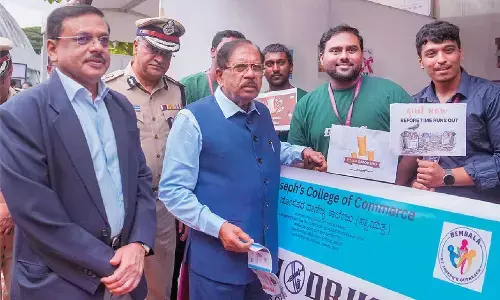Family trust: A foolproof way to ensure smooth transfer of wealth to next gen

By forming a trust, one could not only ensure the transfer of assets but also protect the assets in case of the beneficiaries are still young to handle wealth or a business
While we tend to amass wealth and assets during our productive lifetimes, it's equally important for us to protect this post our life. The estate that was build should be transferred or utilized to the intended persons or purpose. Will or testament is a way to achieve this, but is a rudimentary in terms of instrument and execution. Another foolproof vehicle is to create a family trust that could be designed to the requirements.
Of course, a will could also ensure the continuity or eliminate the disturbance among the family members but it comes with certain limitations. A will could only be operational after the death of the testator. Disposition of the assets under will is not automatic and happens through a probate process i.e., after the validation. This could turn litigate as will could be contested. These are overcome by a family trust as it provides flexibility and effective control & management for a smooth transfer of wealth over generations. It pre-empts various scenarios that avoids potential disputes among the family members.
Private trusts are governed by the Indian Trusts Act, 1882. Trust is treated as a separate legal entity and so could be utilised as a tax planning tool too. By forming a trust, could not only ensure the transfer of assets but also protect the assets in case of the beneficiaries are still young to handle wealth or a business.
A trust is formed by transferring the assets i.e., movable and/or immovable anytime during the lifetime of a person as per their wishes or defined goals. A typical trust has three parties: the settlor, the trustee and the beneficiary. The settlor, also known as the author when handover the assets to the trustees, a trust is formed. The settlor or grantor could also mention the beneficiaries and how the assets must be employed. The details of these are mentioned in what is called as a trust deed. Also, one could create a trust through a will at the post the lifetime of the settlor.
Though there's no limit on maximum number of trustees, a minimum of two trustees are mandatory to form a trust. Like a will, the trust helps one to consolidate all the assets in one place. Formation of trust could turn extremely beneficial to provide for children with special needs which helps the parents to take care of the child post their existence. Trust helps in a smooth succession of assets, especially with families of large size.
This is particularly beneficial in an event of sudden demise of both the parents with kids at a young age. Though there's no inheritance tax in India, such a move was to happen in future, assets transferred from the individual to the trust during lifetime wouldn't attract any inheritance tax.
Creating a trust would be beneficial for those individuals who are entrepreneurs and in family-run businesses. The business continuity come into picture in such cases as the next generation of the family may not be sharing the same ideology and vision that is required for the sustenance of the existing business. The inter-generational friction could be avoided or reduced by executing a trust that carries in the desired mode or path post the individual's lifetime.
Depending upon the type of trust, the tax liability can fall on the settlor or trustees. In a revocable trust i.e., a trust that could be amended or modified by the settlor, the trust income is clubbed with the settlor's income and taxed as such. While in an irrevocable trust, where the settlor can't take or revoke the ownership of the assets once transferred, the income from the trust is treated separately from that of the settlor's income. Here, the trustees pay the tax on behalf of the trust prior to the distribution. Maximum marginal tax rate is considered on incomes from interest and dividends at the trust level while capital gains are taxed at the applicable rates as defined in the short and long-term gains.
For the trust to take shape, the legal or advisory fee is considered for drafting and registered the trust deed. An annual maintenance fee for a corporate trustee, if any along with the costs for accounting, audit. The transfer of immovable assets to a trust attracts stamp duty.
(The author is a co-founder of Wealocty, a wealth management firm and could be reached at [email protected])



















